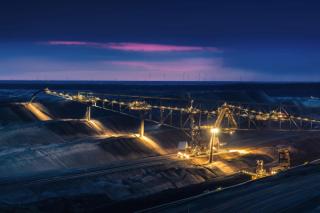
Cultural heritage: Indigenous and cultural heritage values driving sustainable development
by Flavia Kiperman
View post

Habitats and ecosystems form the framework around which biodiversity and other ecosystem services (such as carbon sequestration, soils, flood mitigation, pollination, pest control, nitrate filtering, and cultural amenity) exist.
Degradation of habitats puts these services and people and businesses that depend on them at risk.
“To respond to current global environmental challenges and to sustain the flow of ecosystem services and goods essential for human wellbeing, global society must secure a net gain in the extent and functioning of native ecosystems by investing not only in environmental protection, but also in environmental repair including ecological restoration. This repair must be implemented at multiple scales to achieve measurable effects worldwide (Society for Ecological Restoration, 2019).”
Understanding how to create, restore and manage habitats and ecosystems (ecological restoration), and integrate them in to project plans is crucial in an age where we are responding to the dual challenges of climate change and the biodiversity crisis and associated changes in policy and legislation.
The process of assisting the recovery of an ecosystem that has been degraded, damaged or destroyed1
Ecosystem restoration is sometimes used interchangeably with ecological restoration, but ecological restoration always addresses biodiversity conservation and ecological integrity, whereas some approaches to ecosystem restoration may focus solely on the delivery of other ecosystem services1.
Industry is helping to lead the way toward a regenerative future via ESG commitments, carbon, biodiversity and other natural capital markets and other voluntary mechanisms, as well as responding to legal and policy changes in the environmental sector.
We are seeing a rapid increase in the number of businesses of all sizes choosing to make ambitious environmental commitments and invest in biodiversity and natural capital projects.
Our habitat and ecosystem restoration services are designed to help our clients to meet their environmental aspirations and commitments, through projects designed to take a practical, holistic view of natural capital that deliver a lasting legacy for people and nature set in the local context.
[1] https://www.bbc.co.uk/news/science-environment-58859105
[2] https://www.cbd.int/sp/targets/
[3] https://environment.ec.europa.eu/publications/nature-restoration-law_en
[4] https://www.slrconsulting.com/en/services/natural-capital-ecosystem-services

by Flavia Kiperman

by Jasper Schrijvers , Matthew Hoare

by Clodagh Connolly, Nicola Inge, Andres Schottlaender